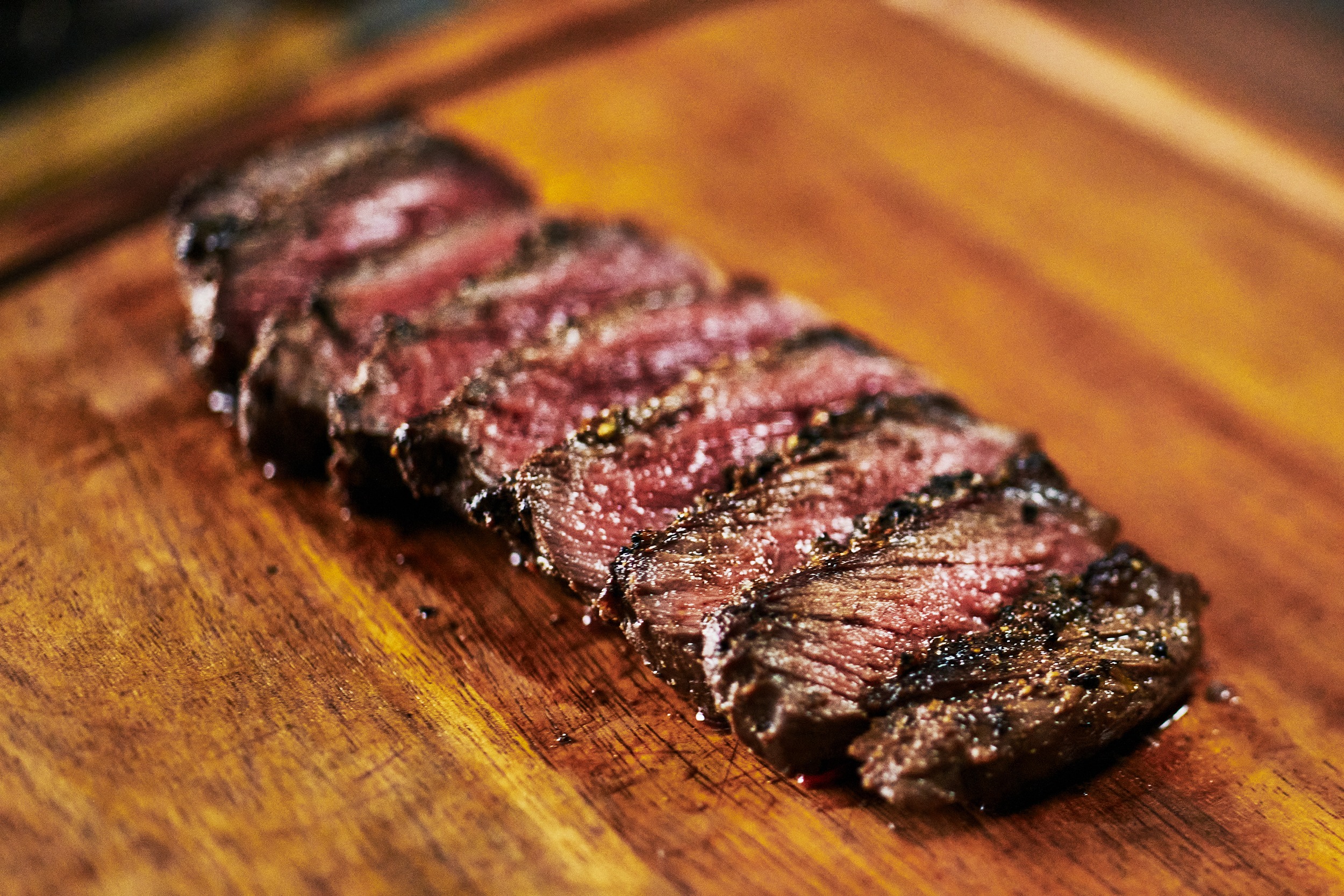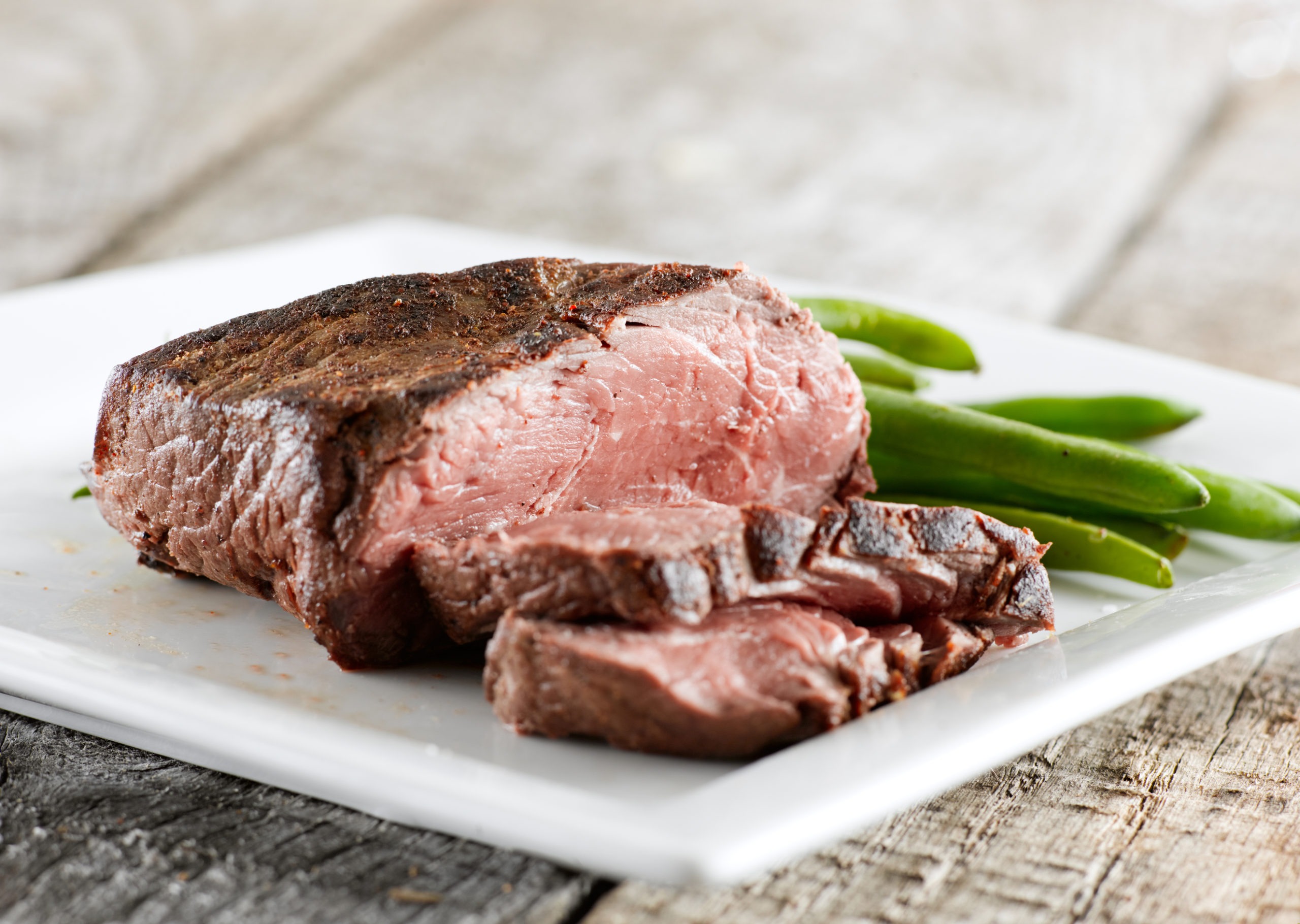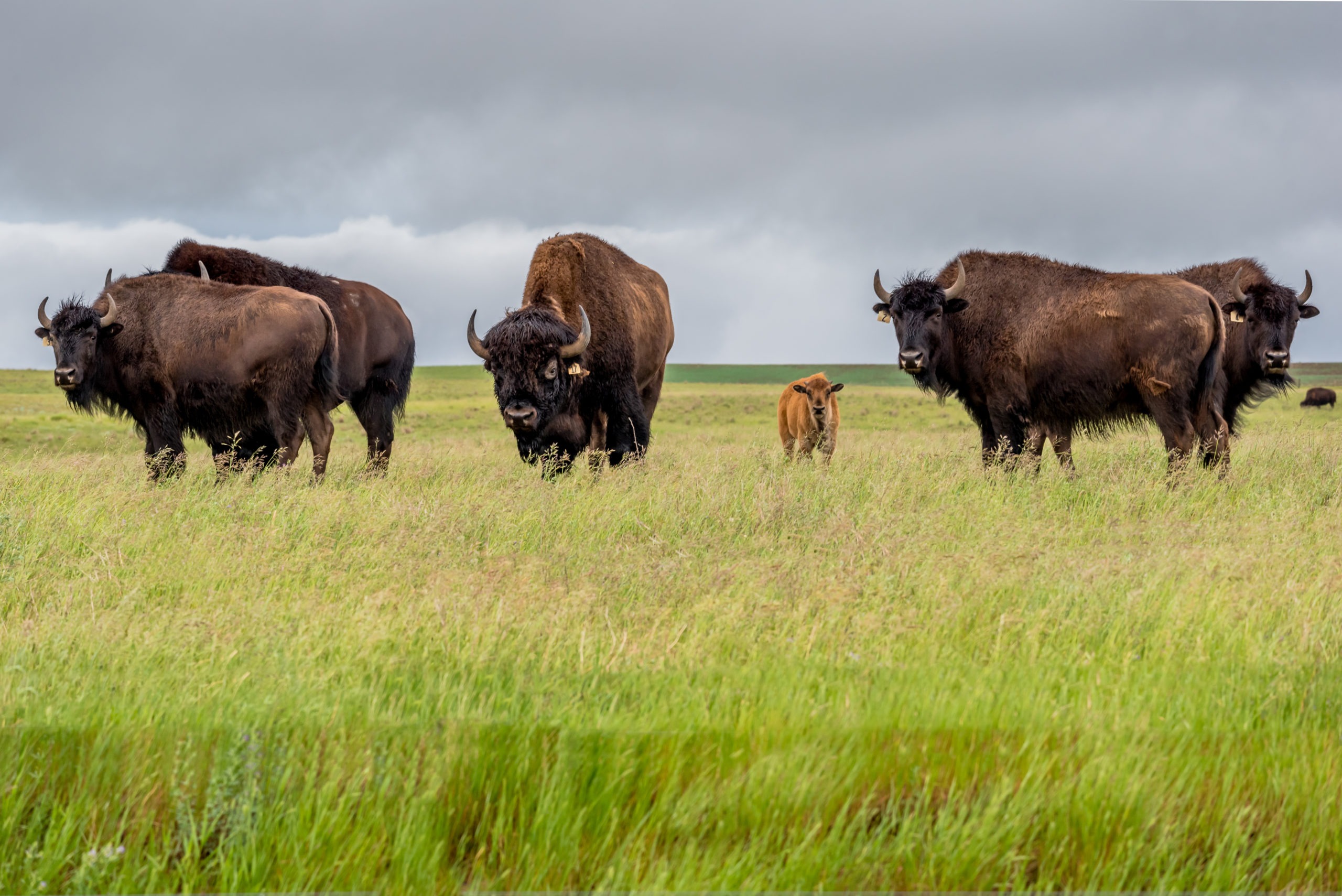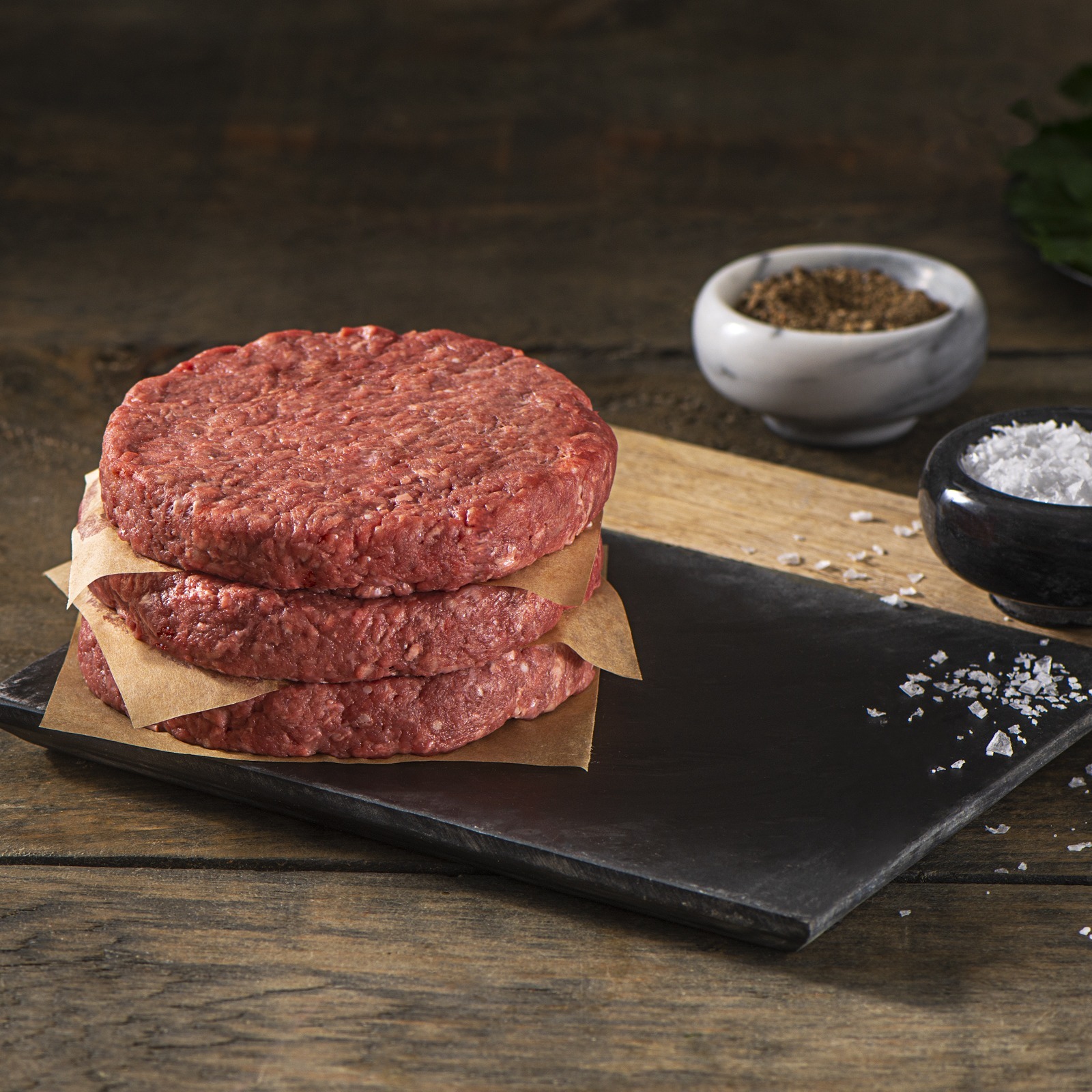Go beyond beef, with bison
Bison and beef cattle are both from the Bovidae family, but beyond that, they’re pretty darn different. From their origins as the ‘bastions of the grasslands’, the bisons’ natural ability to regenerate the land they live on, plus the tenacity to withstand almost anything nature can throw at them, bison are in a ‘gang’ all their own.
The naturally regenerative grazing habits of bison’s vast ancient herds are widely credited for helping the Great Plains and Canadian Grasslands evolve. As one of the world’s original carbon sinks, the importance of bison to grassland restoration and climate change has sparked a revolution in cattle management as well; sustainably focused cattle ranchers are now managing their cattle herds to mimic bison herds’ grazing habits. Yet most consumers still don’t give bison credit where it is due.

Bison—The Original red meat
Sometimes called America’s “original red meat”, almost 60 million bison roamed the Great Plains of North America prior to their near extinction. Contrast that history to the arrival of the first beef cattle to America, which didn’t occur until 1624. In the late 1800s, finally recognizing the near destruction of a species, the U.S. and Canadian governments created legislation to protect the last remaining bison herds. Slowly but surely, the populations began rebounding.
As interest in heritage meats has expanded, private ranching and raising of bison has grown significantly, which in turn has increased the bison numbers in Canada; there are now nearly 1,000 bison producers and close to 150,000 bison.
Bison is one of the healthiest red meat proteins to consume, and yet it’s not as well-known or widely available as beef products. At Noble Premium Bison, we’re trying to change that by educating consumers on the benefits of bison over beef, and by making bison products available at retail across Canada. Many planet-conscious consumers that eat responsibly-produced beef have never even thought to try bison meat, and yet bison meat has so much more going for it than beef.
Bison nutrition vs beef nutrition
Bison is a leaner protein than beef and may be a healthier choice if you’re looking to maximize your nutritional benefit while reducing your calorie or fat intake. Bison is a great choice for Keto-friendly diets; it has considerably fewer calories than beef and is lower in total and saturated fat. Both are good sources of iron, zinc phosphorus, niacin, selenium, and vitamins B6 and B12, although bison meat is higher in Omega 3 fatty acids and iron. In fact, due to its high iron content and low marbling, uncooked bison meat is usually a darker colour than beef. For more on Bison Nutrition, see our Nutrition page.
Higher price, higher value
Bison are not farmed on the same massive scale as beef cattle, and are considered more of a specialty item, with pricing comparable to other premium protein products. Depending on the cut of meat, the price for bison can be slightly higher than beef for a few important reasons:
- There are close to 500,000 head of bison in North America vs over 100,000,000 head of cattle
- There are nearly 25 times more beef cattle in Canada (3.5 million) than there are bison (150,000)
- The bison industry does not have the same efficiencies that the cattle industry does
- Bison are raised primarily on pasture instead of in feedlots, which again impacts cost efficiencies
- Bison take longer to produce; 24-30 months when harvested vs 15-18 months for beef
Tastes like beef, only better
We might be biased, but bison is also known by chefs to have a sweeter, richer taste than beef. It doesn’t take an adventurous palate to try it, and in some cuts like ground bison and ground beef, it might be hard to tell them apart. Due to their versatility and comparable taste profiles, bison and beef can be prepared similarly in your favourite recipes. However, bison has so much more than beef in terms of its nutrient density, and because it’s a leaner meat, bison has less fat and cholesterol compared to other proteins. Just be sure not to overcook your bison steak (we recommend medium-rare and no more than medium).
Check out our recipes for inspiration, cooking tips and suggestions!


Because bison is much leaner than beef, it’s easy to overcook it. Grill the perfect bison steak with Tips and Tricks from the experts.


A group of bison is called a herd, gang or obstinancy. Makes sense when you realize how intimidating and stubborn they can be.


According to the Canadian Bison Association, 100g of lean bison has only 2.42g of fat compared to 8.09g of fat in the same amount of lean beef. Go beyond beef, with bison!


